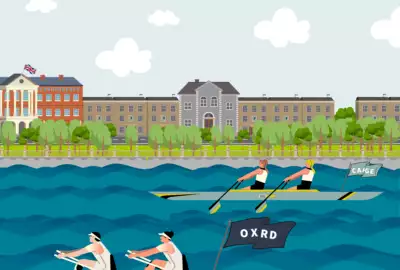Expert Insights
Supercurriculars to Boost Medicine Applications
Published 3rd October 2025 by Alastair

Applying to study Medicine is one of the most competitive routes into higher education.
Excellent grades and strong performance in admissions tests are essential — but they are rarely enough on their own. Universities want to see evidence of your intellectual curiosity, initiative, and genuine commitment to the subject. That’s where supercurriculars come in.
Supercurricular activities are experiences that extend your learning beyond the classroom. Unlike extracurriculars, which can include sport, music, or volunteering, supercurriculars are directly linked to your academic interests. For aspiring medics, they demonstrate not only that you have the academic ability but also the motivation and curiosity to engage deeply with Medicine as a discipline.
Below, we explore some of the most effective supercurricular activities to strengthen your Medicine application.
A well-chosen reading list can be one of the most powerful ways to demonstrate intellectual curiosity. Consider:
Popular science books that explore medical themes in accessible language.
Biographies or memoirs by clinicians and researchers, which offer insights into the realities of medical practice.
Research papers or journal articles for more advanced exploration of topics that interest you.
The key is not just to read widely but to reflect critically. What questions did the text raise for you? Did you agree with the arguments presented? How might the ideas connect with your future career in Medicine?

Universities are increasingly impressed by students who engage with free or low-cost online courses. Platforms such as Coursera, FutureLearn, and edX offer excellent options in fields such as:
Human physiology
Epidemiology
Global health
Medical ethics
Attending online lectures from universities or medical schools can also give you an academic perspective on current research. Be sure to note what you’ve learned and how it shaped your thinking.
While often considered extracurricular, relevant work experience can take on a supercurricular dimension if you reflect on it academically. For example:
Observing how clinicians apply theory to practice.
Thinking about the ethical dilemmas you witness during shadowing.
Connecting practical experience with wider reading on the NHS, patient care, or medical innovation.
Admissions tutors are not looking for a checklist of placements, but for thoughtful engagement with the lessons you take from them.
Taking part in essay competitions, science fairs, or extended research projects can set your application apart. These activities show:
Initiative in exploring a topic in depth.
Willingness to engage with debate and differing perspectives.
Skills in writing, analysis, and independent study — all crucial for medical training.
If your school offers an Extended Project Qualification (EPQ), choosing a topic related to medicine can be a powerful addition to your application.

Medicine is constantly evolving, and universities want to see that you are aware of the wider context. Ways to stay informed include:
Following medical stories in reputable news sources such as The BMJ or The Lancet.
Listening to medical podcasts.
Attending public lectures on health policy or scientific advances.
When discussing these in applications or interviews, show that you can think critically: What are the implications of a new discovery? How might it affect patients, policy, or healthcare systems?
Supercurriculars are not about ticking boxes or collecting certificates. They are about demonstrating genuine intellectual engagement with Medicine, showing admissions tutors that you are curious, committed, and capable of thinking beyond the syllabus.
By reading widely, engaging with online resources, reflecting on experiences, and keeping up with medical developments, you can present yourself as a thoughtful and motivated future medic.
At Ivy Education, our consultants can help you identify the most effective supercurriculars for your profile and show you how to integrate them seamlessly into your personal statement and interview preparation. Learn more about our Medicine Application Support
A supercurricular is an activity that extends your academic interests beyond the classroom. Unlike extracurriculars (such as sport or music), supercurriculars are directly linked to your subject of study — for example, reading medical journals, completing an online course, or entering a science essay competition.
Quality matters more than quantity. Admissions tutors want to see genuine curiosity and critical reflection, not a long list of activities. Even a handful of carefully chosen supercurriculars can be impressive if you engage with them thoughtfully.
Both are valuable, but in different ways. Work experience shows you understand the realities of a medical career, while supercurriculars highlight your intellectual engagement with Medicine. The strongest applications usually combine the two.
Focus on what you learned and how the activity deepened your interest in Medicine. Avoid simply listing books you’ve read or courses you’ve completed. Instead, reflect on the insights you gained and why they matter.
Yes, if you can show meaningful engagement. Online courses from reputable providers demonstrate initiative and a desire to explore topics beyond your school curriculum. The key is to connect what you learned to your broader interest in Medicine.















